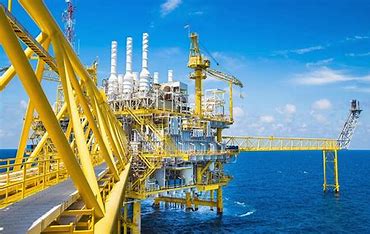Introduction
The oil and gas industry is a cornerstone of the global economy, providing the energy that fuels industries, powers vehicles, and heats homes. At the heart of this complex and dynamic sector lies a vital component: the supply of oil field, production, and general chemicals. These chemicals play a critical role in exploration, extraction, and refining processes, helping to enhance efficiency, ensure safety, and minimize environmental impact.
Understanding Oil Field Chemicals
Oil field chemicals are specialized substances used throughout various stages of oil and gas extraction, from exploration to production. Their applications are numerous and diverse, addressing challenges such as well stimulation, corrosion prevention, and fluid management. Key categories of oil field chemicals include:
1. Drilling Fluids
Drilling fluids, or muds, are essential for the drilling process. They serve several purposes, including:
- Cooling and Lubricating: Drilling generates significant heat, and fluids help cool the drill bit while reducing friction.
- Pressure Control: They maintain pressure in the wellbore, preventing the influx of formation fluids.
- Cuttings Removal: Drilling fluids transport rock cuttings to the surface for disposal or further analysis.
2. Completion Fluids
Once a well is drilled, completion fluids are used to prepare the well for production. These fluids help maintain wellbore stability and prevent the collapse of the formation. Common completion fluids include brines and other specially formulated solutions.
3. Production Chemicals
Production chemicals are crucial for optimizing oil and gas extraction. They include:
- Demulsifiers: Used to separate water from crude oil, enhancing the quality of the final product.
- Corrosion Inhibitors: Protect pipelines and equipment from corrosion caused by the harsh conditions of oil production.
- Scale Inhibitors: Prevent the formation of mineral deposits inside pipes and equipment, which can impede flow and reduce efficiency.
4. Enhanced Oil Recovery (EOR) Chemicals
EOR techniques, such as water flooding and gas injection, often rely on specialized chemicals to improve oil recovery rates. Surfactants and polymers can be used to modify the viscosity of fluids, enhancing their ability to mobilize trapped oil.
The Importance of Chemical Supply in Oil Production
The supply of oil field and production chemicals is essential for several reasons:
1. Operational Efficiency
Chemicals play a crucial role in enhancing the efficiency of oil extraction processes. For example, effective drilling fluids can significantly reduce drilling time and costs by improving performance and minimizing equipment wear. Similarly, production chemicals optimize recovery rates, ensuring that operators extract as much oil as possible from each well.
2. Safety and Environmental Protection
Safety is paramount in the oil and gas industry. The right chemicals help mitigate risks associated with drilling and production. For instance, corrosion inhibitors protect infrastructure from deterioration, reducing the likelihood of leaks and spills. Additionally, environmentally friendly chemicals can be employed to minimize the ecological impact of oil extraction and processing.
3. Regulatory Compliance
The oil and gas industry is subject to stringent regulations governing environmental protection and safety. A reliable supply of compliant chemicals ensures that operators adhere to these regulations, avoiding potential fines and reputational damage. Chemical suppliers play a critical role in providing products that meet industry standards and regulations.
4. Customization and Technology
As the industry evolves, the demand for specialized and innovative chemical solutions grows. Leading chemical suppliers invest in research and development to create customized formulations tailored to specific challenges faced by operators. This technological advancement helps optimize production and reduce costs while enhancing safety.
General Chemical Supply: Beyond Oil and Gas
While oil field and production chemicals are critical for the energy sector, general chemical supply encompasses a broader range of products used across various industries. General chemicals include:
1. Industrial Chemicals
These chemicals are used in manufacturing processes across various sectors, such as plastics, textiles, and pharmaceuticals. They play a vital role in the production of intermediate and final products.
2. Cleaning and Maintenance Chemicals
In the oil and gas industry, cleaning and maintenance chemicals are essential for keeping equipment and facilities in optimal condition. Regular maintenance helps prevent equipment failure and ensures safe operations.
3. Specialty Chemicals
Specialty chemicals are formulated for specific applications, often with high-value characteristics. These can include additives, coatings, and surfactants that enhance product performance and durability.
The Future of Chemical Supply in the Oil and Gas Industry
The landscape of the oil and gas industry is rapidly changing, influenced by factors such as technological advancements, environmental concerns, and the global push for sustainability. As the industry evolves, so too will the role of chemical supply:
1. Sustainability Initiatives
With increasing pressure to reduce carbon footprints and environmental impacts, chemical suppliers are focusing on developing greener products. This includes biodegradable drilling fluids and environmentally friendly production chemicals that minimize harm to ecosystems.
2. Digital Transformation
The adoption of digital technologies, such as data analytics and automation, is transforming the oil and gas sector. Chemical suppliers are leveraging these technologies to optimize supply chains, improve inventory management, and enhance customer service.
3. Collaboration and Partnerships
Collaboration between oil companies and chemical suppliers is becoming increasingly important. By working together, these entities can develop customized solutions that address specific challenges and drive innovation.
Conclusion
The supply of oil field, production, and general chemicals is a fundamental aspect of the oil and gas industry. These chemicals enhance operational efficiency, ensure safety, and support environmental compliance. As the industry faces new challenges and opportunities, the role of chemical supply will continue to evolve. By embracing innovation and sustainability, chemical suppliers can play a pivotal role in shaping the future of the energy sector while contributing to a more sustainable and responsible approach to resource extraction.


No responses yet